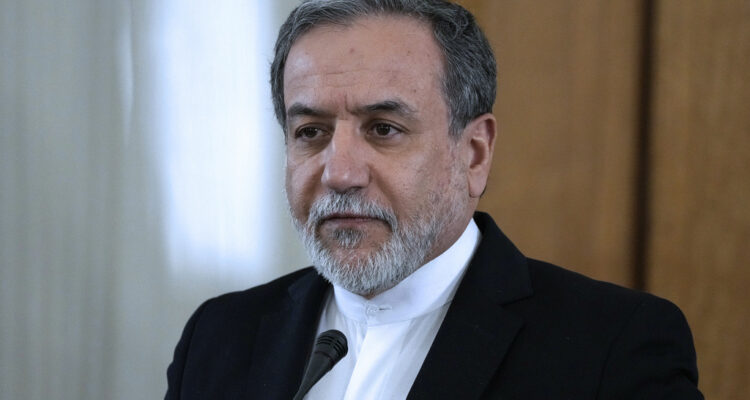Saturday’s renewed engagement, facilitated by the Sultanate of Oman in Muscat, was the first such exchange since Donald Trump returned to the US presidency.
By JNS and World Israel News Staff
Washington and Tehran have begun indirect discussions aimed at reviving nuclear diplomacy.
Saturday’s renewed engagement, facilitated by the Sultanate of Oman in Muscat, was the first such exchange since Donald Trump returned to the US presidency. Iran’s state broadcaster confirmed that US Special Envoy for the Middle East Steve Witkoff and Iranian Foreign Minister Abbas Araghchi briefly met in person — marking the first direct interaction between American and Iranian officials at this level since the Obama era.
The meeting commenced around 3:30 p.m. local time and continued for more than two hours at a secure site on the outskirts of Muscat, according to the Associated Press news agency. Eyewitnesses later spotted a convoy believed to be transporting Witkoff returning toward the US embassy compound in the city.
Amid negotiations between the US and Iran regarding the Islamic Republic’s nuclear program, Trump expressed confidence, describing the process as “almost easy.”
The US president told reporters in the Oval Office, “We’ve got a problem with Iran. I’ll solve that problem.”
“It’s almost an easy one,” he added.
The President addressed an essential red line: Iran must not be allowed to develop a nuclear bomb.
“Iran has to get rid of the concept of a nuclear weapon. They cannot have a nuclear weapon,” he said. “I want them to be a rich, great nation. The only thing is, one thing, simple, it’s really simple. They can’t have a nuclear weapon. And they’ve gotta go fast. Because they’re fairly close to having one. And they’re not going to have one.”
According to the US website Iran Watch, the Islamic Republic has sufficient enriched uranium to develop five fission nuclear weapons in one week and eight in two weeks.
Referring to his warning to Iran last month that it would face military consequences if a deal wasn’t reached, the president discussed the reality of a tangible response if negotiations fail.
“If we have to do something very harsh, we’ll do it,” Trump said. “And I’m not doing it for us. I’m doing it for the world. These are radicalized people, and they cannot have a nuclear weapon.”
Top Tehran officials have warned Iran’s Supreme Leader Ayatollah Ali Khamenei to agree to nuclear talks with the US or face the downfall of the regime.
Although Khamenei had previously refused to hold discussions with the US about its nuclear program, the officials, who requested to remain anonymous, told the ayatollah that the future of the regime was at stake if he continued to refuse to engage in negotiations with the US.





